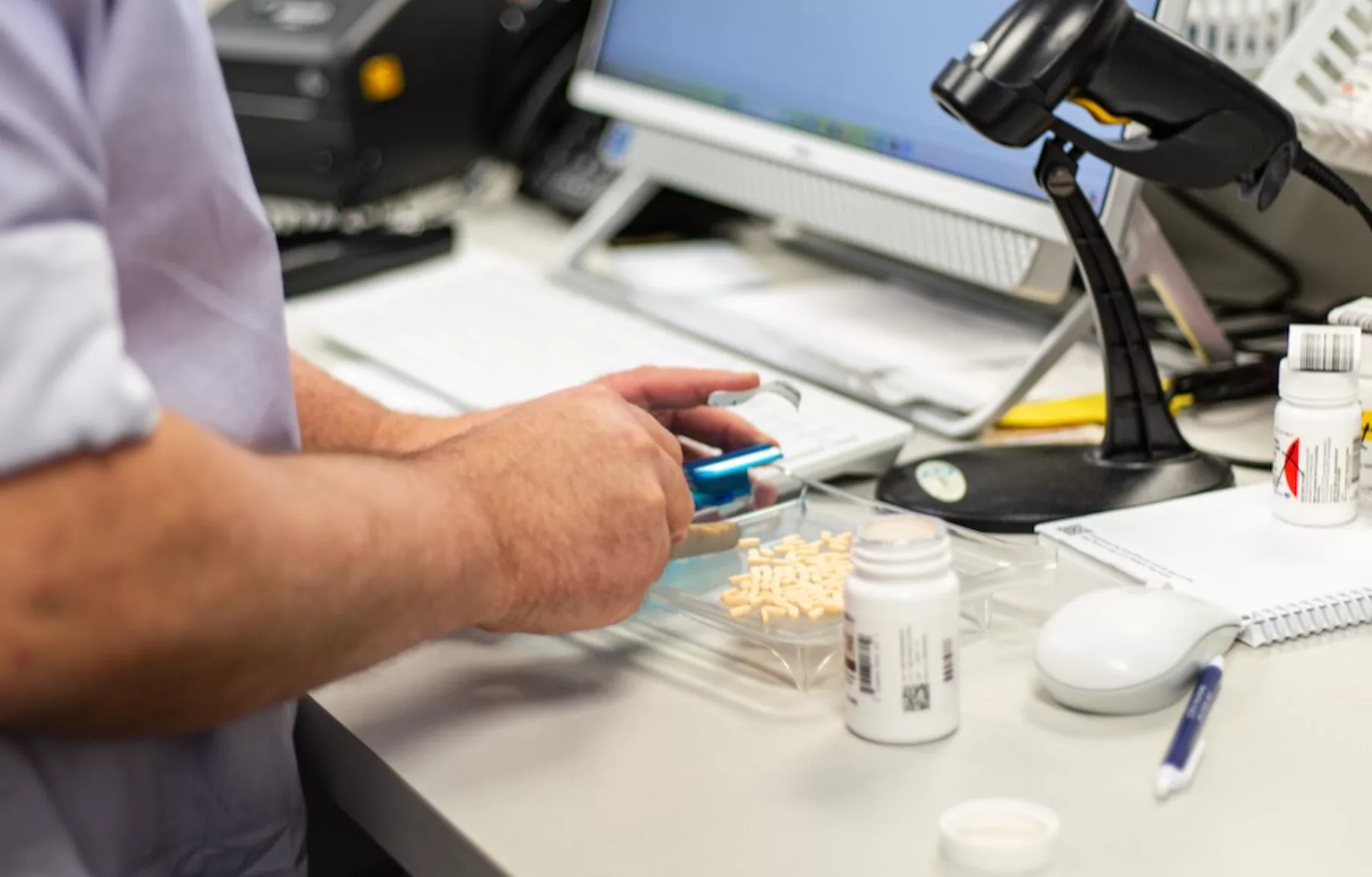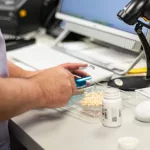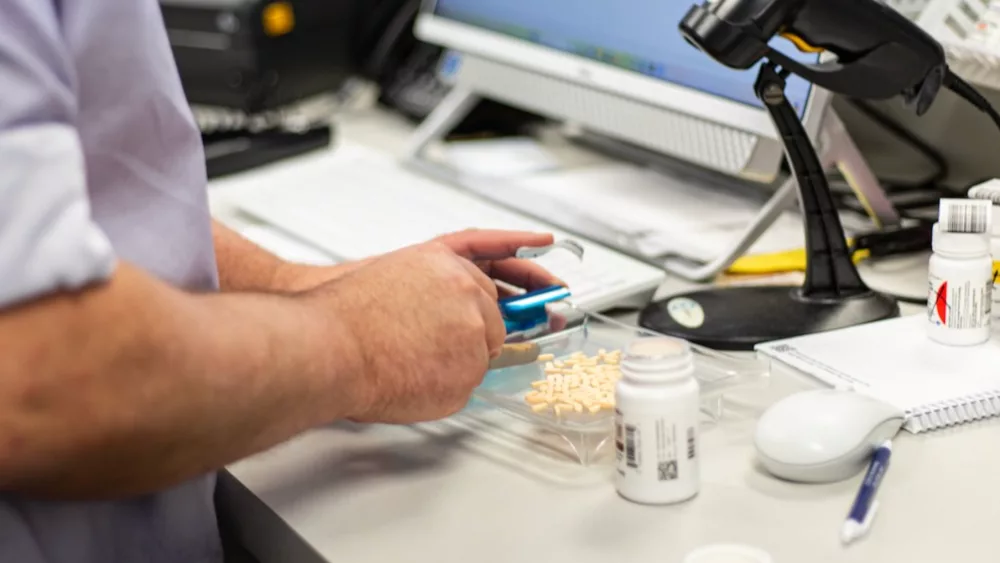
BY: SUZANNE KING
If your mail-order prescription landed in a pile of snow on your doorstep last week, you may want to proceed with caution.
Pharmacists warn that extreme temperatures — cold or hot — can change the chemical makeup of medicine, often making it less effective. But medicine coming through the mail in overheated UPS trucks or ending up in frozen mailboxes has little in the way of temperature control — and not much regulatory oversight.
A revised prescription delivery rule in Missouri, which took effect Dec. 30, aims to address that.
The new Missouri Board of Pharmacy rule gives pharmacies licensed in the state a list of requirements to follow when mailing prescriptions to patients, a practice that became more common during the COVID-19 pandemic.
In 2024, just over 4% of the country’s prescriptions were delivered by mail, according to the health care research company IQVIA. The number has declined from around 5% at the height of the pandemic.
But factors like more independent drug stores and chain pharmacies closing and online giant Amazon moving deeper into the business could drive growth in mailed prescriptions.
Missouri’s rule change is a major expansion of state regulations related to pharmacy delivery. For starters, the old rule didn’t mention mail — only delivery.
Under the new rule, pharmacies must attempt to contact the patient before shipping medication. The package they send also has to include information about how to contact state regulators, how to detect if medicine has been compromised in transit and what to do if it has.
In addition, Missouri’s new rule states that pharmacies must have “policies and procedures” for mailing medicine, including using “proper packaging containers and materials to maintain physical integrity and stability of package contents.”
Kansas does not have regulations specifically related to mailed prescriptions.
Kimberly Grinston, executive director of the Missouri Board of Pharmacy, said the change is a response to public feedback and part of the board’s routine review of rules.
“The rule overall adds new requirements and new safeguards for pharmacies that are mailing medications,” she said.
‘Anybody’s best guess’ if medicine is safe
But critics said it doesn’t go far enough to protect medications from extreme transit temperatures.
“These policies and procedures should already be in place,” said Loretta Boesing, a Missouri mom who founded Unite for Safe Medications after her son nearly rejected a transplanted liver when his mail-order medication arrived damaged from extreme heat.
“The problem is it’s not being demanded of them,” she said. “I guarantee you there are still patients here in Missouri, where we’re having temperatures below freezing, (whose) medications are still going to be shipped mostly in bags.”
Boesing said regulators should require pharmacies to be sure medications stay within safe temperature ranges by doing things like shipping them with temperature sensors that could indicate if a delivery has endured extreme temperatures.
“Right now, it’s anybody’s best guess if their medications are safe,” she said.
Lori Croy, a spokesperson for the Missouri Board of Pharmacy, said in an email that the board has not made a decision about temperature sensors. Their use, she said, is being considered by United States Pharmacopeia (USP), the national organization that establishes standards for drug handling, and “the board will continue to monitor circumstances and USP recommendations/guidance to protect Missouri patients.”
While the U.S. Food and Drug Administration regulates many aspects of medications, states deal with pharmacies. The “last mile” when a medication is shipped by mail or commercial carrier directly to a consumer has had little oversight.
Regulations generally lay out temperatures required for storing drugs, but not necessarily for shipping them.
Medications that must be refrigerated have the same temperature requirements during shipping. But drugs that can be stored at room temperature have no stipulations about shipping temperatures, said Paul Abato, a pharmaceutical expert witness.
That means a prescription that should be stored at room temperature could be exposed to temperatures well over 100 degrees Fahrenheit going through the mail on summer days in Missouri.
“All bets are off when drugs that are meant to be stored at room temperature get shipped,” Abato said.
No longer the prescribed dose
Experts agree that heat or cold can compromise the efficacy of medication.
“If you have a drug that’s exposed to temperature extremes whether hot or cold, there’s a chance the drug could not be as potent,” said Kendall Guthrie, a professor at the University of Missouri-Kansas City School of Pharmacy. “That could mean the drug may not be as effective.”
Patients can’t always tell that a medicine has been affected just by looking at it. They might think they’re taking the dose their doctor prescribed, but actually extreme temperature exposure has made the pill they got in the mail much less powerful, Guthrie said.
Boesing, who lives in Park Hills in the eastern part of the state, had a sense that her son’s medication was too warm when it arrived in the mail a few years ago. He needs it every 12 hours to prevent his body from rejecting a donated liver.
After she gave her now 14-year-old the medicine, it didn’t take long for his body to begin rejecting the liver. Luckily, the worst didn’t happen and her son is fine, but Boesing believes the close call wouldn’t have happened at all if her son’s medication had been protected from the heat. Or if her family’s insurance hadn’t forced her to get the drug by mail in the first place.
That’s why she dedicates so much of her time to advocating for safeguards.
“People are getting hurt because the regulators fail to enact policies and rules that have teeth,” Boesing said.
Medicine coming by mail should be protected, she said. And people should always have the choice not to get medicine by mail.
Guthrie, who also serves as president of the Missouri Pharmacy Association, agreed. She said the Board of Pharmacy’s rule changes are a good step toward mail-order drug safety. But the more important change, she said, needs to come from lawmakers.
Legislation introduced in Jefferson City and backed by the pharmacy association would stop pharmacy benefit managers (PBMs), the middlemen who administer pharmacy insurance benefits, from forcing patients to use mail-order pharmacies in the first place.
PBMs, which also own mail-order pharmacies, do this by giving patients a better deal through mail order or by refusing to cover medicine dispensed by another pharmacy.
That leaves many patients with no choice but getting their drugs through the mail, whether or not it’s a medication that can withstand the resulting uncertainty.
“I think mail is a really good option for some patients,” Guthrie said. “But I think there’s also a really big percentage of patients who want to use a community pharmacy.”
This article first appeared on Beacon: Missouri and is republished here under a Creative Commons license.



